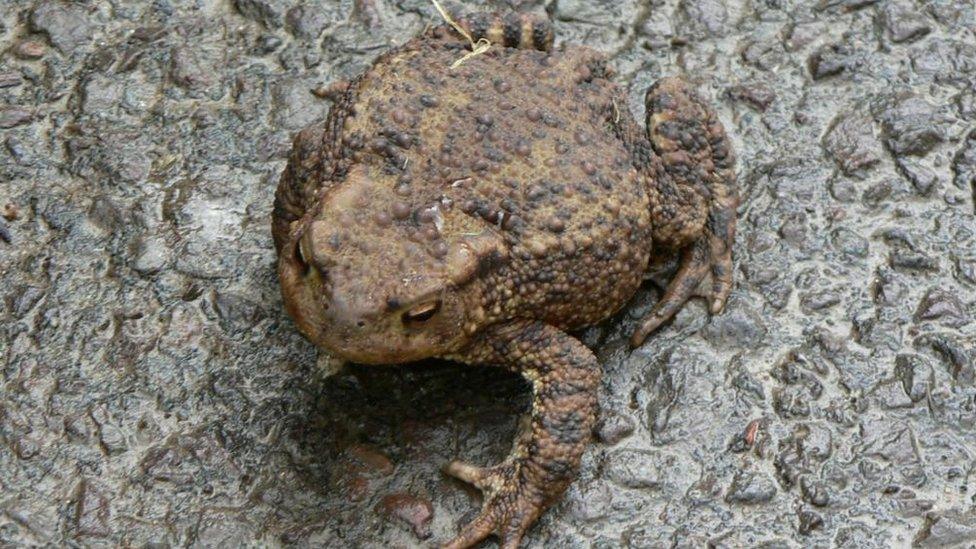Scientists surprised to find toads living in trees
- Published
- comments

The study suggests there could be a substantial number of toads in the UK's trees
You've heard of toad in the hole, well how about toad in the tree?!
Researchers from the University of Cambridge and amphibian charity Froglife were looking for bats and hazel dormice, when they found something surprising... toads living in trees!
It was a surprise as toads largely live in water and on land, but the team found toads in bat boxes and hollow holes in the trees they were searching.
The findings suggest the number of toads regularly using trees in the UK could be "substantial", according to the study.
This toad was found in a nesting box!
The researchers were surveying the number of hazel dormice and bats living in trees.
During their research they recorded more than 60 cases of amphibians living in a tree.
Most of the amphibians recorded were common toads and one had managed to get more than three metres (10ft) up a tree.
They were found in bat boxes, nesting boxes, tree cavities and even an empty blackbird's nest!
Toad in a hole... in a tree!
Experts suggest the toads could be attracted to trees because they provide a damp environment with plenty of woodlice, slugs and ants to feed on, safe from predators and parasites.
Most of the holes and boxes were the toads were found are located so high up, that researchers are still wondering how the toads are getting up there.
Study author Dr Silviu Petrovan said: "We know common toads favour woodlands as foraging and wintering habitat, but it appears their association with trees is much more complex than we thought.
"Further, targeted research will enable scientists to better understand the reasons for this behaviour and the impact on woodland management for common toads and other amphibians."
The study published in the journal Plos One, and was completed with amphibian charity Froglife and the People's Trust for Endangered Species.
- Published2 February 2022
- Published20 November 2019
